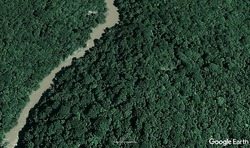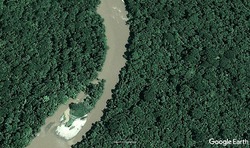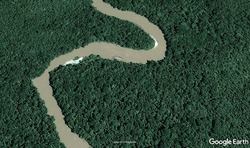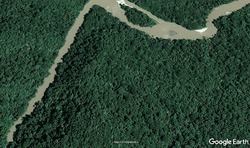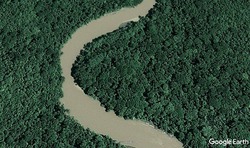Four new palm oil permits issued across Papua region

The issuance of these four new palm oil permits by the Indonesian Investment Coordinating Board (BKPM) took place from late July to late November 2017, more than a year after President Joko Widodo announced a moratorium on palm oil expansion in mid-April 2016.
The technical process involved in the issuing of the permits was performed by the Ministry of the Environment and Forestry.
“These four new palm oil permits obtained approval in principle from the previous government administration in 2013-2014. The boundary arrangements for these ones are completed. This is an unavoidable legal process needed to proceed in a bureaucratic system in coordination with BKPM.”
Professor Sigit Hardwinarto, the Ministry’s new Director General of Forestry Planology and Environmental Planning, who took up his post in early November last year, explained this in a conversation with foresthints.news (Jan 31) at the ministry building.
He went on to say that, in the event that a legal basis underpinning the palm oil expansion moratorium is issued, concessions which consist of good forest cover - whether from new palm oil permits or old ones - would remain objects for evaluation.
Below are some examples taken from Google Earth images (2010-2014) of the high-density forest cover which dominates the four new palm oil concessions whose permits were issued in Papua and West Papua.
Meanwhile, time-series USGS Landsat 8 and ESA Sentinel-2 images confirm that the new palm oil concessions are still mostly made up of intact forests with their predominating high-density forest cover yet to change.
One of the four new palm oil permits in the Papua region is for a company under the Ganda group, one of the key suppliers to Wilmar International. In fact, part of this new concession has already been developed. As it turns out, another company under this group is also developing new palm oil plantations in Papua by clearing HCS forests.
Most permits on hold
It is worth noting, Professor Sigit continued, that - despite the issuing of these four new permits - as of now there are about 1.5 million hectares for which the processing of new permits - most notably for palm oil concessions - remains on hold by the ministry in the wake of the President's announcement of the moratorium on palm oil expansion.
“Delaying almost all new permits is one of our strategies for controlling deforestation, while we are waiting for a legal basis supporting the moratorium on palm expansion,” the director general pointed out.
Three of the four new palm oil permits issued in the area are located in West Papua province and the majority of these concessions are composed of high carbon stock (HCS) forests. The following Google Earth images (2010-2014) depict a representation of the present forest cover situation in these three new concessions.
The director general underlined that a legal basis for the palm oil expansion moratorium is also very necessary to assess the extent to which palm oil companies have met their obligation to allocate 20% of their concessions to local communities.
“Current evaluations have shown that the fulfilment of this requirement is very low. This is one of the main concerns that will be seriously addressed,” he cautioned.
The clearing of these intact Papuan forests can only be prevented with the release of a legal basis for implementing the moratorium on palm oil expansion.
In addition, considering the presence of peat ecosystems, including peat protection zones, in parts of the newly-granted concessions, Indonesia’s new peat regulations could also prevent the clearing of these peat ecosystems for new palm oil expansion.


